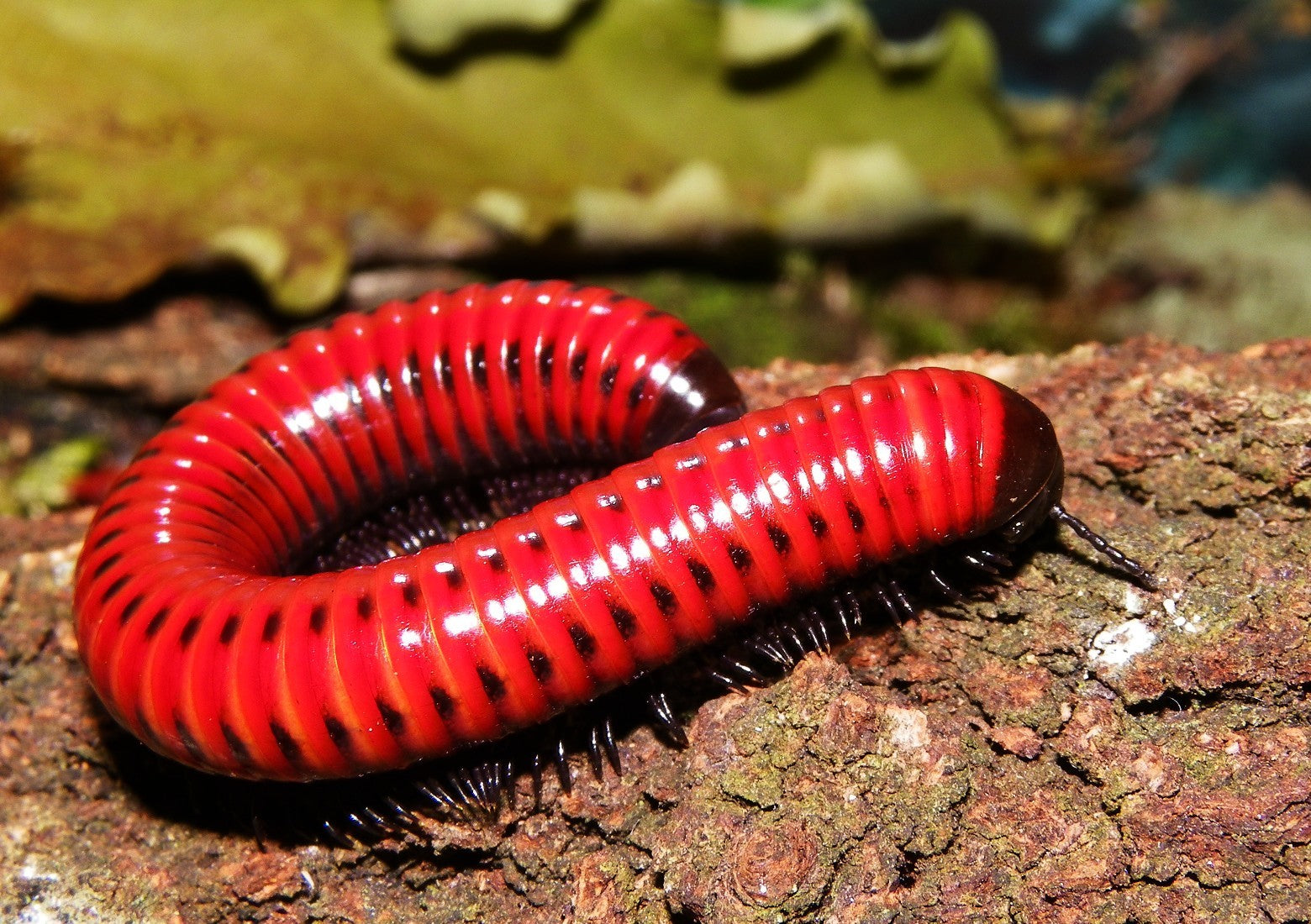Description
Centrolobus Fulgidus (Black Fire Millipedes)- Image if for illustration purposes only!
Housing
- Enclosure: A medium-sized terrarium or plastic container (at least 5-10 gallons) with a secure lid (to maintain humidity and prevent escapes) is suitable for housing a small group of Black Fire Millipedes. These creatures are not particularly adept at climbing smooth surfaces, but it's better to be safe.
- Substrate: Use a deep layer (at least 4-6 inches) of moistened substrate composed of organic soil, coco coir, decayed leaves, and rotting wood. This mix will support their burrowing behavior and provide them with necessary nutrients as they consume the substrate over time.
- Humidity: High humidity levels, around 70-80%, are crucial for their survival. Achieve this through regular misting of the enclosure, but ensure there's adequate ventilation to prevent mold growth.
- Temperature: Maintain a temperature range of 22-26°C (72-79°F). Use a heating pad under one side of the enclosure if needed to create a temperature gradient, allowing the millipedes to thermoregulate.
Feeding
- Diet: Black Fire Millipedes are detritivores, primarily feeding on decaying organic matter. Supplement their diet with fresh vegetables (e.g., cucumbers, carrots, sweet potatoes) and fruits (e.g., apples, bananas) in small amounts. Remove uneaten fresh food within 48 hours to prevent mold.
- Calcium: Offer a source of calcium, such as cuttlebone or eggshells, to support their exoskeleton health.
General Care
- Cleaning: Regularly remove moldy or spoiled food and spot-clean the enclosure as needed. A complete substrate change is recommended every few months, depending on the size of the enclosure and the number of millipedes.
- Handling: Minimise handling as millipedes can secrete defensive chemicals when stressed. If handling is necessary, do so gently and with clean hands to avoid harming them.
Social Needs
- Centrolobus fulgidus are communal and can be kept in groups. Ensure there's enough space and food for each millipede to minimize competition and stress.
Observation
- Regularly observe your millipedes for signs of activity and health. Healthy millipedes will actively explore their enclosure and consume food. Inactivity or lack of appetite over extended periods can indicate stress or poor health.
Order and get 10 reward points
Earn points by signing up for our rewards program

